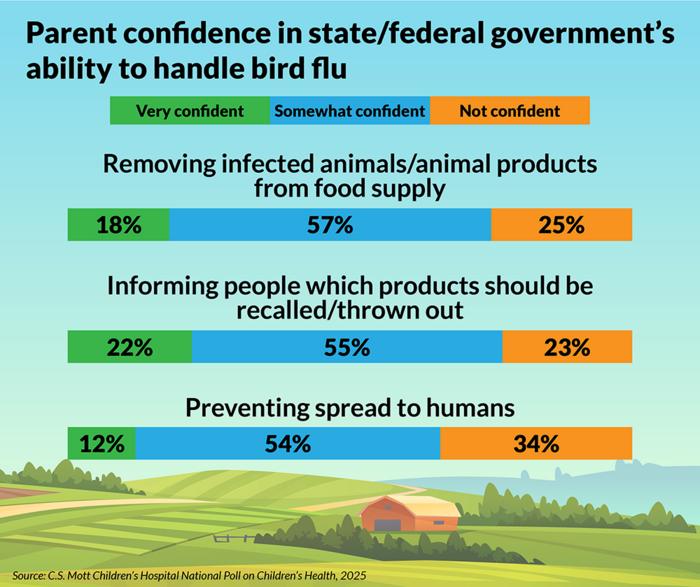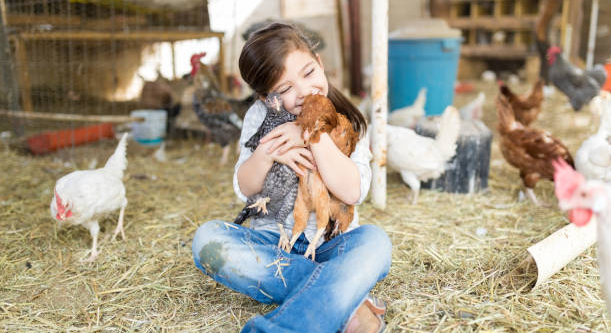Less than half of US parents think they have accurate information about H5N1 avian flu, most don't know whether there has been a human case in their state, 2 in 5 want the government to take more action to prevent outbreaks, and 1 in 3 have taken steps to prevent infection in their family, finds a report on the University of Michigan Health C.S. Mott Children's Hospital National Poll on Children's health.
The nationally representative report, based on the responses of 2,021 parents of children aged 18 years and younger, also found that 1 in 5 respondents say media reports on the virus have been overblown.
In a news release, Sarah Clark, MPH, poll codirector, said many parents hear about avian flu in news reports but don't know if they should do anything about it. "This report highlights the challenge for parents to keep track of an emerging health situation and understand its potential threat to their child's health," she said.
Current outbreak, risk
The current US outbreak of H5N1, which was first identified in March 2024 when the virus was confirmed in dairy cattle, is widespread in wild birds, which have transmitted the virus to poultry and cows. Seventy people in the United States have been infected, most of whom worked with farm animals, and one has died. But the risk to the general public remains low, according to the Centers for Disease Control and Prevention (CDC).
A new CDC study that evaluated the susceptibility to antiviral drugs of H5N1 clade 2.3.2.1c viruses (found in Cambodia) and 2.3.4.4b viruses (in the Americas) that were obtained from infected people in 2023 and 2024 found that all were susceptible to baloxavir, tivoxavir, pimodivir, oseltamivir, zanamivir, peramivir, laninamivir, and AV5080, with differing levels of effectiveness.
And except for two viruses isolated from Cambodia, all were susceptible to M2 ion channel-blockers in cell culture–based tests. The findings were published late last week in Emerging Infectious Diseases.
A third don't think government can contain virus

Less than a quarter of parents surveyed say they're being more careful about general hygiene, while 13% are more cautious about handling eggs, chicken, and beef. Another 12% are avoiding contact with birds and other wild animals, and 7% are eating fewer eggs and less chicken and beef.
"Some parents indicated they have cut back on eating poultry products like eggs and chicken," Clark said. "However, as long as eggs and meat are fully cooked, there’s no evidence that bird flu is spread through these products."
Among the 68% of parents who haven't taken preventive actions, their main reasons are that they already have good hygiene practices, don't know the recommendations, or don't feel at risk.
Over 25% of respondents said they are very concerned about avian flu spreading from animals to humans or humans to humans, but a third don't have confidence in the government's ability to contain the virus. Further, less than 20% expressed high confidence in the government's ability to remove infected animals or products from the food supply, and 22% said they were very confident it will share information about which products should be recalled or discarded.
"There appears to be a gap in public confidence when it comes to the national response to bird flu," Clark said. "Misinformation and uncertainty can fuel anxiety, so it's critical that health officials communicate transparently about containment efforts and food safety to reassure families."
Risk to general public remains low
Parents' most common source of information was news reports, followed by social media and online searches. Family or friends, a government agency, or healthcare providers were less important sources.



















